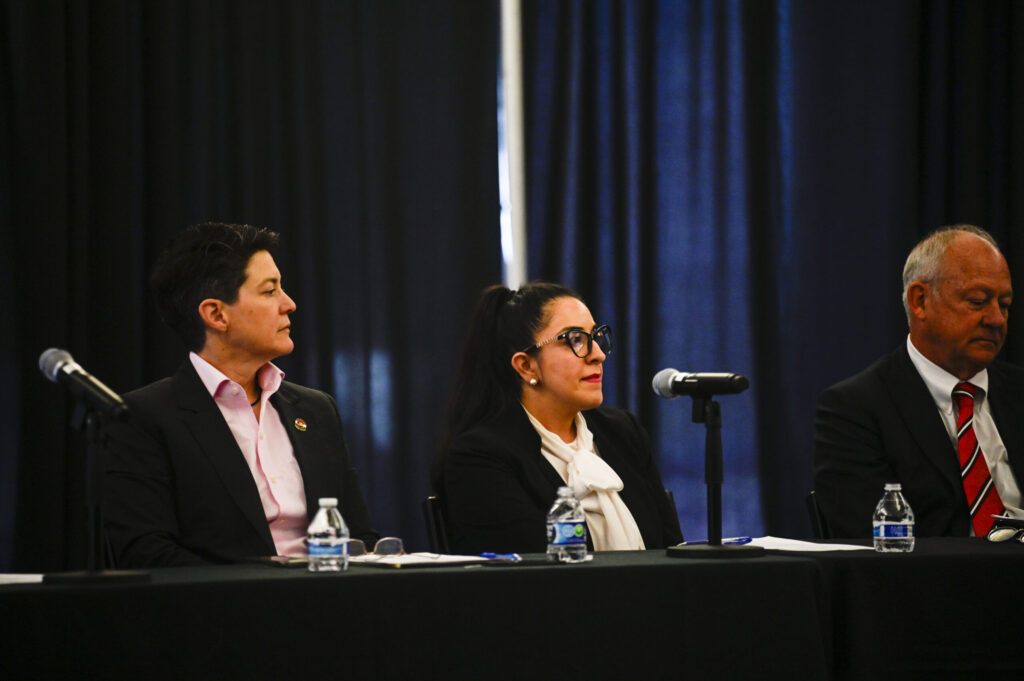10th Circuit underscores high standard for constitutional claims against doctors
The federal appeals court based in Denver agreed last week that a doctor did not violate the constitutional rights of an incarcerated man who later died, while rebuffing a perceived attempt to “redefine the standard” for holding medical providers liable.
A three-judge panel of the U.S. Court of Appeals for the 10th Circuit underscored that a constitutional violation, as opposed to medical negligence, cannot arise through deficient treatment alone.
Charles Anthony Hurtado died in December 2018 after he was transported from Buena Vista Correctional Facility to Heart of the Rockies Regional Medical Center in Salida. Hurtado was suffering from an abscess and one of the doctors who treated him, Jerry A. Smith, prescribed oral antibiotics and painkillers after determining there was no “liquefied cavity” that required draining.
Later that day, Hurtado returned to the emergency room in intense pain. At that point, he underwent surgery to drain the abscess and was transferred to a Colorado Springs hospital. He subsequently died, with the coroner’s office concluding the abscess was the primary cause.
Hurtado’s brother subsequently filed suit against Smith. Instead of a negligence claim, which was barred by Colorado law because of Smith’s status as a public employee, the lawsuit alleged Smith was deliberately indifferent to Hurtado’s serious medical needs. Such a constitutional violation, under the Eighth Amendment’s prohibition on cruel and unusual punishment, requires a defendant to know of, but disregard, a significant risk to a person’s health and safety.

FILE PHOTO: The Alfred A. Arraj federal courthouse in Denver
In September 2023, U.S. District Court Judge Daniel D. Domenico resolved the lawsuit in Smith’s favor, noting the evidence showed Smith may have been negligent in treating Hurtado, but his actions did not rise to the level of a constitutional violation.
In issuing his decision, Domenico noted the plaintiff’s lawyers presented the statements of an expert witness, surgeon Hobart W. Harris, who opined that Smith “exhibited deliberate indifference on several occasions.” Harris defined deliberate indifference as the act of making a decision “where the (negative) consequences are predictable.” Domenico pointed out Harris’ understanding flew in the face of the law.
“As an expert witness, Dr. Harris may testify as to industry standards for doctors and other issues of fact,” he wrote, “but may not opine on legal standards.”
On appeal, the plaintiff’s attorneys maintained a jury could believe Smith “is lying” about his unawareness of an abscess that needed draining. But the 10th Circuit panel pushed back during oral arguments on the notion that Smith’s initial treatment of Hurtado was cruel and unusual.
“The doctor said at the time of his examination there was no indication of a liquefied cavity. It seems to me that they were really trying to figure out what was going on with this individual,” said Senior Judge Paul J. Kelly Jr. “If that’s gonna be deliberate indifference, as opposed to making a mistake or not going quite far enough, what have we done to the profession?”
Although the plaintiff’s attorney maintained Smith had to have known about the nature of Hurtado’s ailment, Kelly — a volunteer emergency medical technician in his home state of New Mexico — suggested the dispute was really over an incorrect medical diagnosis.
“You can be stupid but you’re not deliberately indifferent,” he replied. “The absolute liability — if you make a wrong diagnosis you’re deliberately indifferent — that cannot be the rule. All my kids are doctors. It’d be a disaster.”
In the panel’s Oct. 22 opinion, Kelly underscored Smith’s testimony that he was unaware of a liquified cavity that required draining, meaning Smith did not know of and disregard a serious risk to Hurtado’s life. Like Domenico, Kelly also criticized the plaintiff’s expert witness for characterizing Smith’s actions as deliberate indifference based on a lower threshold for a constitutional violation.
“Plaintiff cannot attempt to redefine the standard for deliberate indifference,” Kelly wrote. “Indeed, Dr. Harris’ standard for deliberate indifference ignores the reality that doctors constantly deal with probabilities and make medical decisions in the face of risk.”
The case is Estate of Hurtado v. Smith.











